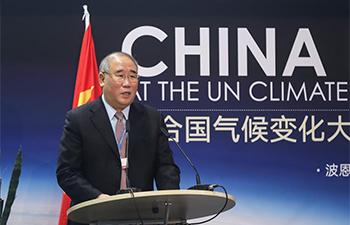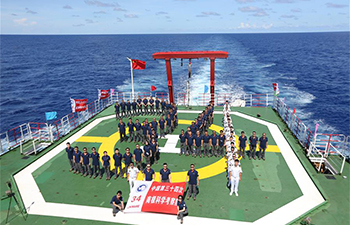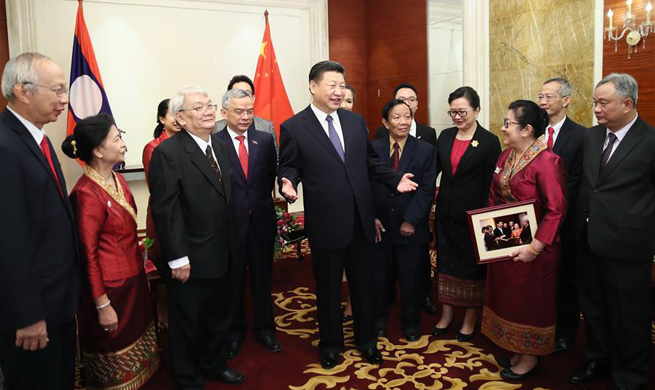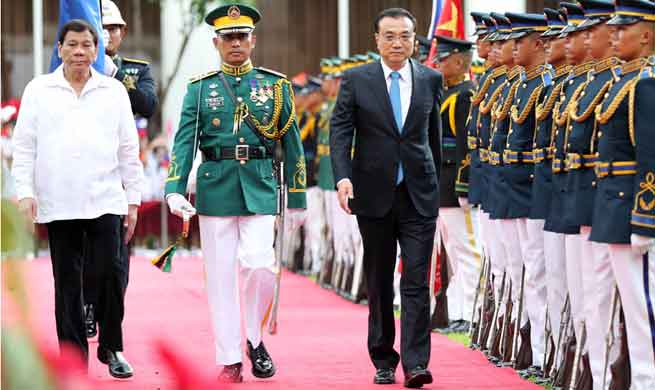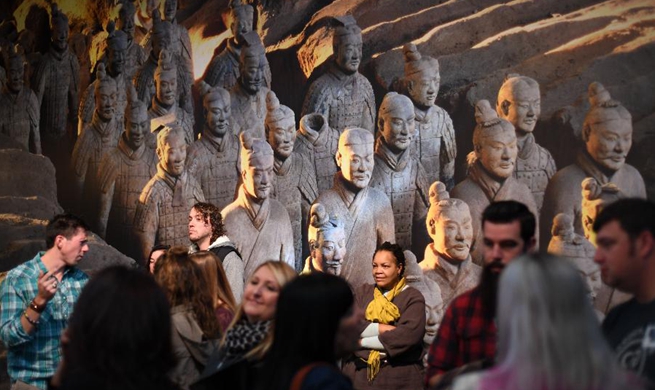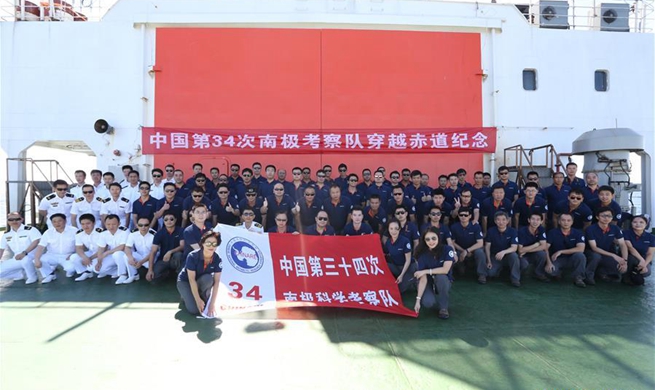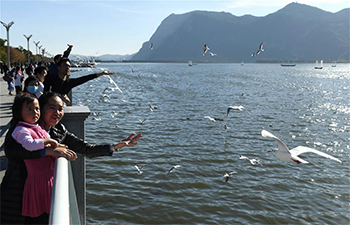by Xinhua writer Zhu Dongyang
WASHINGTON, Nov. 15 (Xinhua) -- U.S. President Donald Trump touted his America First idea and sent protectionist trade messages during his Asia visit, which ended on Tuesday.
The move would marginalize the United States in a region where globalization has been actively pursued, experts say.
Claiming that Washington has long been taken advantage of by Asian nations in their trade ties, Trump said at bilateral and multilateral events such as the annual Asia-Pacific Economic Cooperation (APEC) Economic Leaders' Meeting, that the snowballing trade imbalance between Washington and Asia has to be curtailed now.
Such remarks were not resounded in a region that has sought economic integration and connectivity for decades.
"Globalization marches on without Trump," noted the London-based Financial Times. "Mr. Trump is expected to leave Asia, a region that carries the future hopes of many U.S. companies, without delivering any substantial new trade initiatives."
"It's the overall message this Trump dilemma presents. Everyone else is going forward with trade integration while the United States is trying to slow it down," Rufus Yerxa, a former U.S. official heading the National Foreign Trade Council, was quoted as saying.
"The reluctance to engage the U.S. lies at least partly in the bellicose approach adopted by Mr. Trump and his aides and their 'America First' brand of economic nationalism," noted the Financial Times article. "Behind it all is what some see as a rapidly emerging and increasingly inescapable truth. Globalization has not died with the ascent of Donald Trump. If anything, for now, other countries are finding ways to accelerate the process."
In the eyes of Richard Hass, head of Council on Foreign Relations, a U.S. think-tank, Trump's "protectionist, nationalist trade message only marginalizes U.S. in Asia" and "undermines U.S. economic and strategic interests."
Trump "rejects large trade agreements that tie our hands. But that is what an agreement does -- along with the hands of others," said Hass.
Even Trump himself admitted the righteousness of Asian nations in protecting their own interests.
"Trump's efforts to cut off the U.S. deficit might work for a while, but in the end, he cannot reverse the fundamental causes of the deficit -- the economic structure, industrial specialization, etc. These demands unprecedented willingness to launch reform, and the nationalist trade policy of his administration will not help build up that willingness in the region," said Xu Liping, a senior research fellow at the Chinese Academy of Social Sciences (CASS).
"Rather, the headstrong efforts to reduce deficits are expected to undermine global trade and the world economic recovery in a large picture, and pull the U.S. into mounting trade wars with Asian economies," he said in a written interview with Xinhua.
During his 12-day visit, taking him to five Asian countries of Japan, South Korea, China, Vietnam and the Philippines, Trump also frequently raised the South China Sea issue.
In Vietnam on Sunday, Trump offered to "help mediate or arbitrate" the issue. In Manila, he also voiced concerns about the maritime security in the region.
"I know we've had a dispute for quite a while," he said. "If I can help in any way, I'm a very good mediator and a very good arbitrator. I have done plenty of it from both sides."
The proposal was inopportune and untimely, said Xu. "As the negotiation between claimants on the code of conduct in the South China Sea is going on, such remarks by the United States are prone to spark speculation that Washington wants to roil the water and then undermine peacemaking and confidence-building efforts in this regard."
"The Trump administration's strategy in this regard is barely helpful to a region that calls for cooperation rather than division, and prosperity rather than provocation," Xu added. "It also does no good to the constructive engagement that Washington claimed to have within the region."
Trump's self-recommendation also met an anemic response from Vietnam, the Philippines, both relevant parties to the South China Sea issue, and the region.
The joint statements issued on Nov. 13-14 by the Association of Southeast Asian Nations members barely mentioned any of the U.S. concerns. Instead, the 10-nation bloc vowed to enhance regional cooperation on such fronts as the Regional Comprehensive Economic Partnership (RCEP), infrastructure connectivity, food security, coastal and marine environmental protection, among others.
"The overall situation on the South China Sea is moving towards peace and stability, as all relevant countries have expressed their support for the freedom of navigation, flight and commerce. The earlier the White House recognizes this fact, the wiser its decision will be," Xu added.







